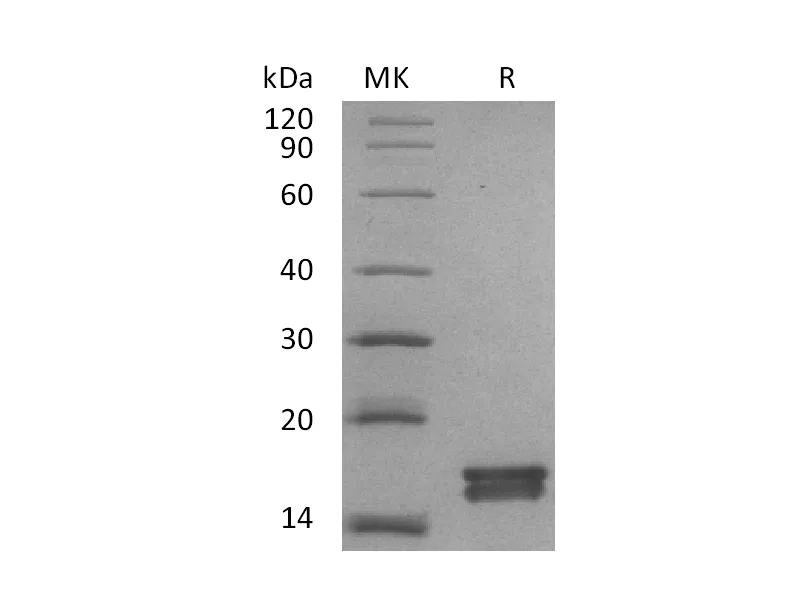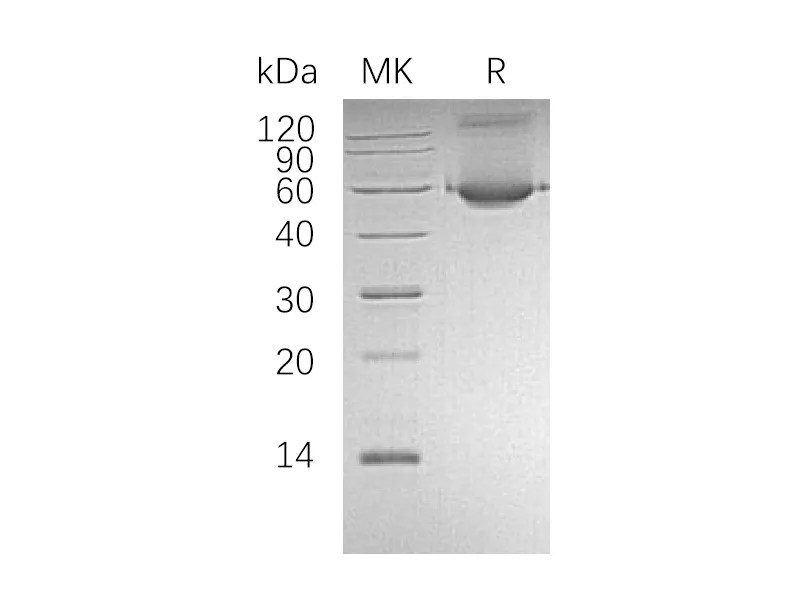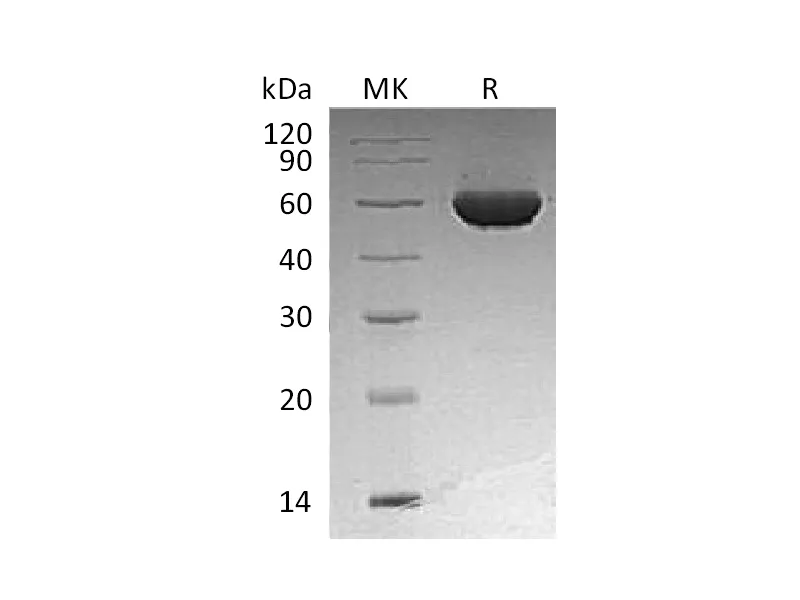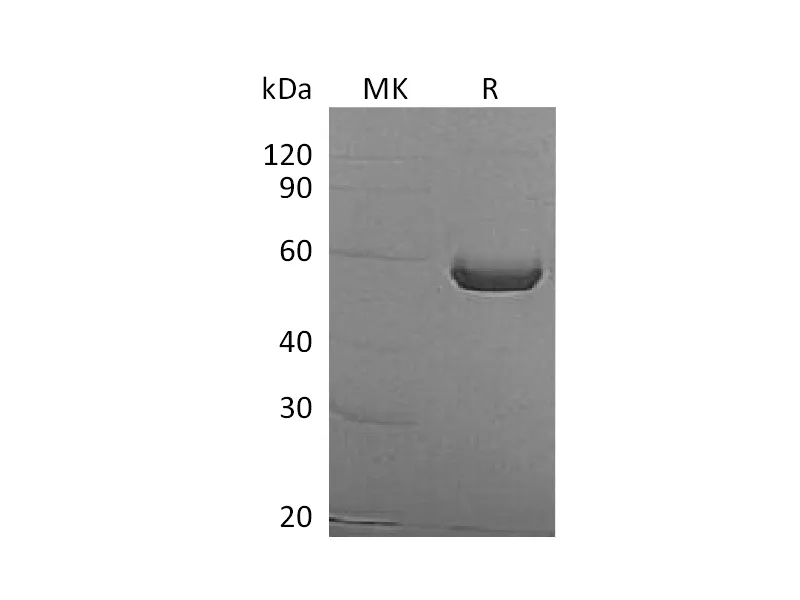Alternative Names
Pregnancy-specific beta-1-glycoprotein 1;PSBG-1;CD66 antigen-like family member F; Fetal liver non-specific cross-reactive antigen 1/2; PSG95; Pregnancy-specific beta-1 glycoprotein C/D
Background
Pregnancy-specific beta-1-glycoprotein 1(PSBG-1 for short), also named CD66 antigen-like family member F, Fetal liver non-specific cross-reactive antigen 1/2, PSG95, Pregnancy-specific beta-1 glycoprotein C/D, is a secreted protein which belongs to the immunoglobulin superfamily, CEA family. It contains 3 Ig-like C2-type (immunoglobulin-like) domains and 1 Ig-like V-type (immunoglobulin-like) domain. The human placenta is a multihormonal endocrine organ that produces hormones, enzymes, and other molecules that support fetal survival and development.
Note
For Research Use Only , Not for Diagnostic Use.




